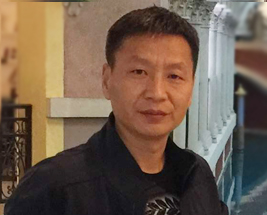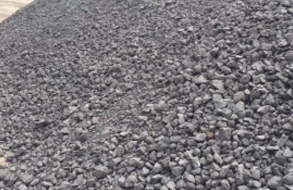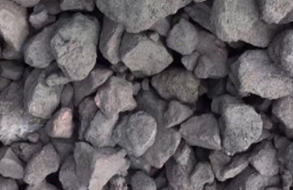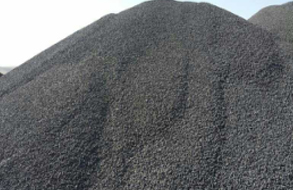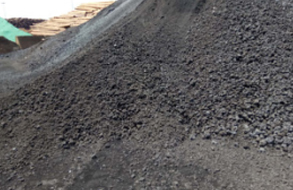Oversupply weighs on manganese ore market
----Interview with Wang Baili
General Manager
Tianjin Kaiwosheng International Trade Co., Ltd.
- Established in 2012, Tianjin Kaiwosheng International Trade Co., Ltd. serves medium and small-sized enterprises in China as a trading company. The company sets up a good social image by keeping improving its core competitiveness and consistently adheres to the business philosophy of "quality first and reputation first". With scientific management system and solid technical support, it will keep deepening reform and innovating mechanism to fit the market and develop comprehensively. Tianjin Kaiwosheng has been highly acknowledged by industry insiders for its integrity, strength and product quality.
- Asian Metal: Mr. Wang, thanks a lot for taking our interview. First of all, would you please give a brief introduction to the company's manganese ore business?
- Mr. Wang: We mainly trade South African manganese ore lumps 37%min and high-Fe manganese ore, with a monthly trading volume of around 15,000t and 10,000t respectively. In addition, we sell high-silicon manganese ore such as Brazilian and Moroccan high-silicon manganese ores with a monthly sales volume of 6,000t and around 1,000t respectively. We also trade 2,000t of high-grade Australian manganese ore per month.
- Asian Metal: Now manganese ore consumers are reluctant to purchase. What about the sales of your company in September?
- Mr. Wang: The market is quiet now with limited transactions. The main reasons are large inventories in plants and at ports, as well as the sluggish purchases of downstream buyers; however, the most important reason is the unbalanced supply and demand. The supply is relatively abundant, but downstream demand is soft, so it is normal that the price is unable to go up. In view of the above reasons, our sales in September are not very satisfactory.
- Asian Metal: Approaching the heating season, steel mills in North China would be under the production restriction. Would your company adjust manganese ore imports accordingly?
- Mr. Wang: There will definitely be some appropriate adjustment. Manganese ore prices in the international market stand high, while the spot market sees sluggish transactions and unsatisfactory prices, which adds a lot of uncertainty and difficulty to the trading in the future. The production restriction during the heating season is favorable to downstream products but unfavorable to upstream raw materials, and will also have a great impact on other upstream products. Therefore, we will be cautious about making replenishment.
- Asian Metal: How much is the annual import volume of manganese ore of your company? Mainly by signing long-term contracts or trading on spot market?
- Mr. Wang: Our import volume has been increasing in recent years, and we expect to import around 300,000t this year. We mainly purchase manganese ore on the spot market and occasionally sign long-term contracts.
- Asian Metal: The inventory at ports has been large since the second half of this year. Does this situation affect your subsequent imports?
- Mr. Wang: The inventory at ports is indeed relatively large, which is also a concern of our company, because the determinants of prices mainly depend on the supply and demand. The price goes down when the supply exceeds demand, and it goes up when the supply falls short of demand. At present, supported by the costs and manganese alloy prices, manganese ore prices will not drop dramatically in the spot market, but they will not significantly increase either for the oversupply. There is basically no difference between the prices in the international market and the spot market in China, nevertheless, price of South Africa manganese ore 37%min is still in inversion, so we will certainly reduce the imports.
- Asian Metal: Which origin and grade of manganese ore do you prefer?
- Mr. Wang: We mainly deal in South African manganese ore lumps 37%min and high-Fe manganese ore. These two kinds of manganese ore are not comparable to high-grade oxidized manganese ore and manganese alloy plants buy them based on their needs at different periods. At present, the profit of manganese alloy is decent. Restricted by limited capacity, manganese alloy plants choose to raise output and use more high-grade oxidized manganese ore while reducing the use of South African manganese ore lumps 37%min; if these plants intend to reduce costs, they will reduce the use of high-grade oxidized manganese ore and prefer other low-grade manganese ore. Of course, plants will make corresponding adjustments based on their cost-effectiveness analysis.
- Asian Metal: How do you think of the further increase of manganese ore quotations from BHP for October and from UMK for November?
- Mr. Wang: China is the largest importer of manganese ore with strong demand; in addition, there is large newly-added capacity of manganese alloy in China, for example, the new furnaces in Ningxia, Inner Mongolia, and South China will add an annual capacity of around 4 million tons; also, the decent profit margins of manganese alloy plants in China is also a reason that foreign mining companies are optimistic about the manganese ore market outlook.
- Asian Metal: What about the future plan of your company?
- Mr. Wang: In view of the unclear market outlook amid so many uncertainties, we take a relatively conservative and stable business strategy while actively exploring the market: for the upstream, we will develop more channels to replenish and get superior resources; for the downstream, we will actively communicate with factories to maintain relationships, so that we can ensure a stable development of the company.
